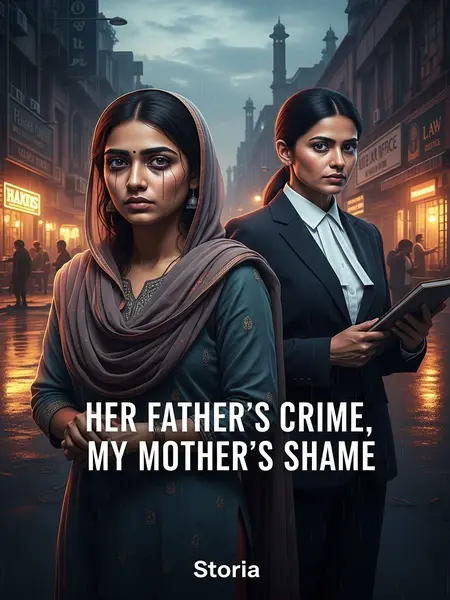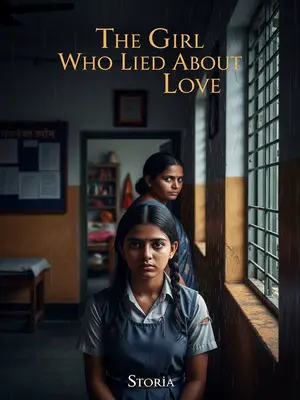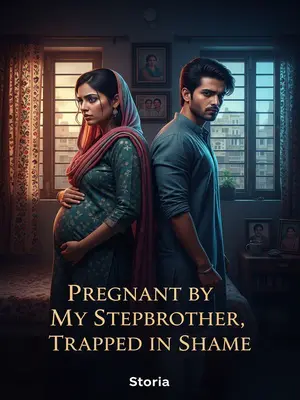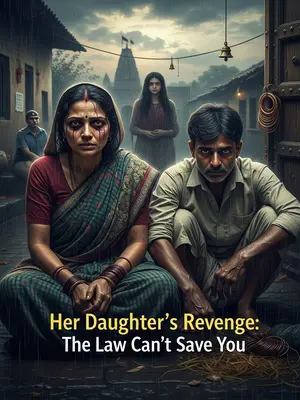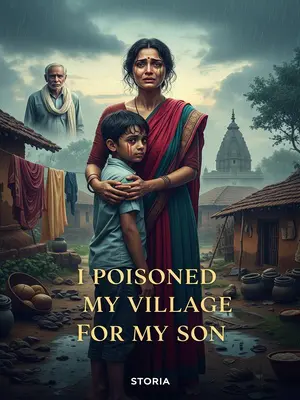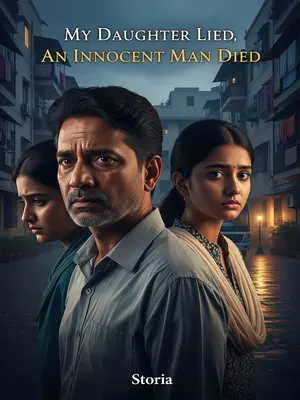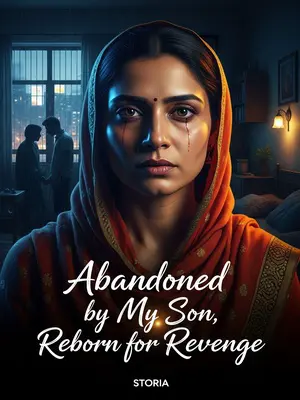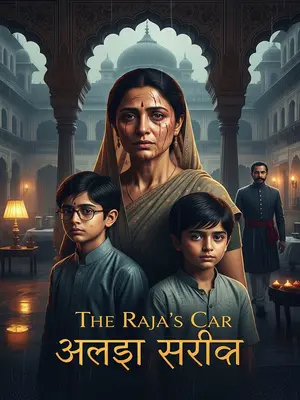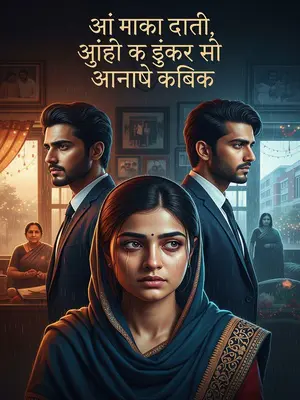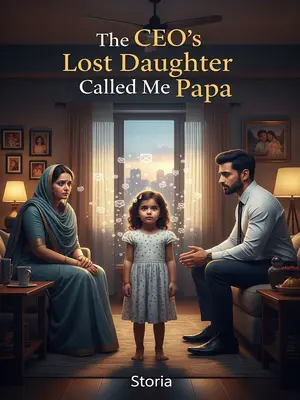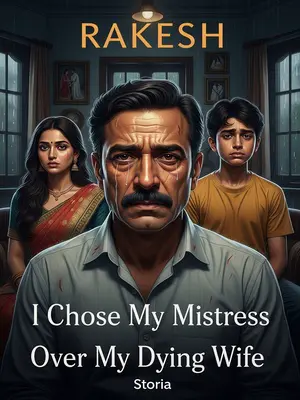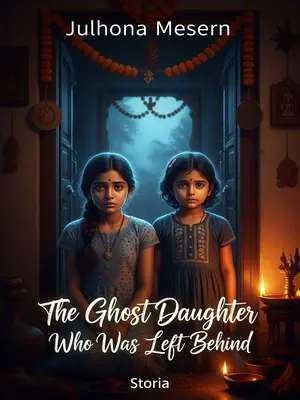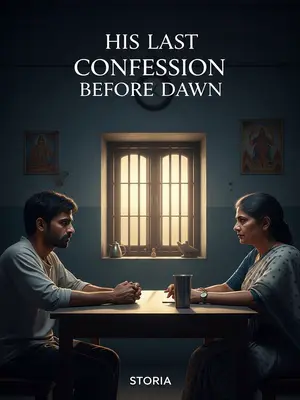Chapter 2: The Case File and the Visitor
In the winter of 2015, our law firm took on a legal aid case, which had originally been assigned to a colleague.
Delhi’s winter is no joke. Every morning, the office peon would bring cutting chai in steel tumblers—milky and oversweet, with a film of malai floating on top—and our entire legal team would huddle near the heater, steam curling above our case files, the burnt-wire smell of the heater mixing with the sharp winter air. That season, we’d taken up a sarkari legal aid case—a serious one, but dumped in our laps more out of bureaucratic routine than hope.
It was a case of intentional homicide, filed back in 2000. At that time, investigative technology was limited, and there were no useful leads from social connections. The case went unsolved for over a decade, until a month ago, when a key clue finally emerged, allowing the case to be cracked.
The case file itself was yellowed and battered, a relic of a time when mobile phones were rare, and police still made rounds on rickety scooters. In those days, even a missing person’s report could get lost in the maze of files in the thana. The murder was especially vicious, and with no one to vouch for the accused, years passed before a scrap of evidence—some new DNA analysis or a confession wrung out by guilt—breathed new life into the investigation.
The evidence was overwhelming, the crime itself was particularly cruel, and though there was a confession, it came too late. There were no extenuating circumstances. By the time the case reached us, there was almost nothing left for a defence lawyer to do—the trial was a mere formality.
The prosecution had played its cards well; not even a distant cousin from the village had dared turn up. The judge barely looked up from his files before pronouncing the inevitable. The death sentence was like a ritual, an announcement everyone in the courtroom had been expecting.
The first trial resulted in a death sentence. There was no appeal. Soon after, it reached the death penalty review phase.
My senior, Advocate Shirish, who had more hair on his chest than on his head, was about to close the file for good when suddenly he was called away to Bengaluru for a family emergency—something about his chachi’s bypass surgery. So, as luck would have it, the final paperwork and responsibilities landed on my desk.
He’d barely finished telling me the gist before rushing off, suitcase in hand, muttering about flight delays and the unpredictability of Air India. I nodded along, half-distracted by the stack of other files threatening to topple over on my table.
I was swamped with other matters, so I accepted the task but didn’t pay it much mind. I only got a verbal briefing and hadn’t even looked at the case files.
I’ll be honest, my mind was elsewhere—half on a property dispute between two warring brothers in Janakpuri, half on the next cup of chai. Death penalty review cases are usually a lost cause. It’s just procedure—sign a few papers, attend a quick hearing, move on.
Until one day, a strange woman stopped me at the law firm’s entrance, insisting there was another side to the story that I had to hear immediately.
She looked like she hadn’t eaten in days, hair sticking out from under a faded dupatta, eyes swollen as if she’d spent the previous night crying. There’s a particular kind of urgency in the way the desperate approach you in Delhi: not quite pleading, not quite demanding, but somewhere in between. She caught me just as the lift door was closing, breathless.
I glanced at her quickly, thinking she was probably bluffing, but still asked as I walked, "Are you a witness?"
In this line, you learn to ask straight away—witness or relative? Everyone wants to help, but half the time it’s rumour or neighbourly spite.
Because the case was so old, there had been no witnesses at the first trial. Who would have thought that, after the verdict, a witness would suddenly show up?
To be honest, in India, nobody ever turns up at the last minute unless there’s a real story. Most people are too afraid of the police or of being dragged into the court’s endless rounds. I wondered if she was just another one of those who had suddenly remembered something now that everything was over.
But her answer surprised me: "No, I’m not a witness. I am evidence."
I stopped, keys jangling in my hand. This was not the usual script. Not a witness? Then what? My mind raced, looking for some hidden angle. Was she delusional? Or had she come to confess something that would turn the case upside down?
What a strange thing to say.
Nobody says things like that in real life—except in those suspense serials on TV. I felt a sudden shiver, a mix of curiosity and dread. The security guard at the gate stared at us, uncertain whether to intervene.
I stopped and turned to look at her.
Up close, I saw how battered she really was—her salwar splattered with mud, chappals worn out at the heel, and a look of someone who had walked through hell and back. But her eyes, despite the mess, were sharp and youthful, shining with a pain that only those who have carried too much for too long can have. Something about her felt haunted, as if a fragment of her soul was still trailing behind in the past.
She seemed out of place among the polished glass doors, steel nameplates, and the faint smell of sanitizer that clung to our reception. Even the peon, Rakesh, paused with the duster in hand, eyeing her with a mixture of pity and suspicion. But her presence was like a silent challenge—an unspoken dare to listen, just once, before turning her away.
Through her tangled hair, I glimpsed a pair of sorrowful, youthful eyes. A strange sense of foreboding welled up inside me.
Somewhere in my chest, something tightened. I had seen enough grief in the eyes of clients and their families, but hers carried a different weight—a mix of old wounds and unshed tears, as if she had lived through lifetimes in her twenty-odd years.
So I brought her into the firm’s reception room.
We walked past the row of certificates on the wall—"Best Law Firm 2013", "Advocate of the Year"—none of which seemed to matter in the presence of real, raw suffering. I gestured for her to sit on the worn sofa, its cover a little frayed at the edges. Rakesh set down a glass of water, his eyes never leaving her face.
"May I ask your name?"
Her hands shook a little as she brushed the hair from her face, eyes darting around as if searching for escape routes.
"My name is Meera. I’m 24 this year, studying abroad in the United States," she said. "I just returned to India a month ago."
Her accent had a slight twang, an odd mix of small-town Hindi and American English, the kind you only pick up after spending a few years abroad. There was pride, but also a kind of uncertainty, as if she was unsure whether her achievements would be believed here.
To prove she wasn’t lying, she showed me her Aadhaar card, her undergraduate degree from home, and proof of enrolment at a foreign university.
She fished out a plastic folder from her canvas bag, hands trembling as she laid out the cards and certificates before me. The Aadhaar card was creased at the corners, the degree certificate still crisp, the foreign university letterhead bold and expensive-looking. My heart softened a little—she was clearly someone who had worked hard to get where she was.
I glanced over them—they were all from top universities. She was clearly an outstanding student.
I took a moment to read the names—Delhi University, and then, University of Michigan. So, not just any student—one of those who make entire villages proud. The kind of girl mothers talk about at the beauty parlour, the kind of profile that makes distant relatives call for donations at weddings.
"Hello, Meera." I returned her documents and got straight to the point. "I’m very busy today, but since this concerns a matter of life and death, I’ve cleared my schedule. We have the afternoon—please, tell me: how can a person be evidence?"
I leaned forward, elbows on knees, doing my best to sound both brisk and reassuring. She seemed to relax, just a fraction, as if she’d finally been granted permission to speak after days of rehearsing her lines.
"Thank you, Advocate Rajeev." She pushed her hair aside, her expression tense and urgent.
She fumbled with the end of her dupatta, her thumb rubbing circles on the frayed hem, a habit picked up from childhood. Her voice, though, didn’t waver.
"First of all, I want to say: I’ve always believed there are strange things in this world. Since I was little, there have been many secrets around me. I keep recalling the past, trying to make sense of it all, but I’ve never been able to touch the truth.
There’s something about the way Indians talk about fate, about the unseen. Her words carried that unmistakable weight—almost as if invoking the gaze of God, or at least her ancestors.
"It wasn’t until now that I finally found the real answer. This answer is crucial to the case. Please, you must help me."
She looked me straight in the eye. I could feel the desperation radiating off her—something not just learned in books, but lived.
"Go ahead."
I pushed the case file aside, my curiosity now properly piqued. I leaned back, signalled to Rakesh for another cup of chai, and waited for her to begin.
At that time, I still had no idea what kind of shock this case would bring me.
If I had, maybe I would’ve made a quick excuse and run. But some stories, once started, refuse to let you go.
